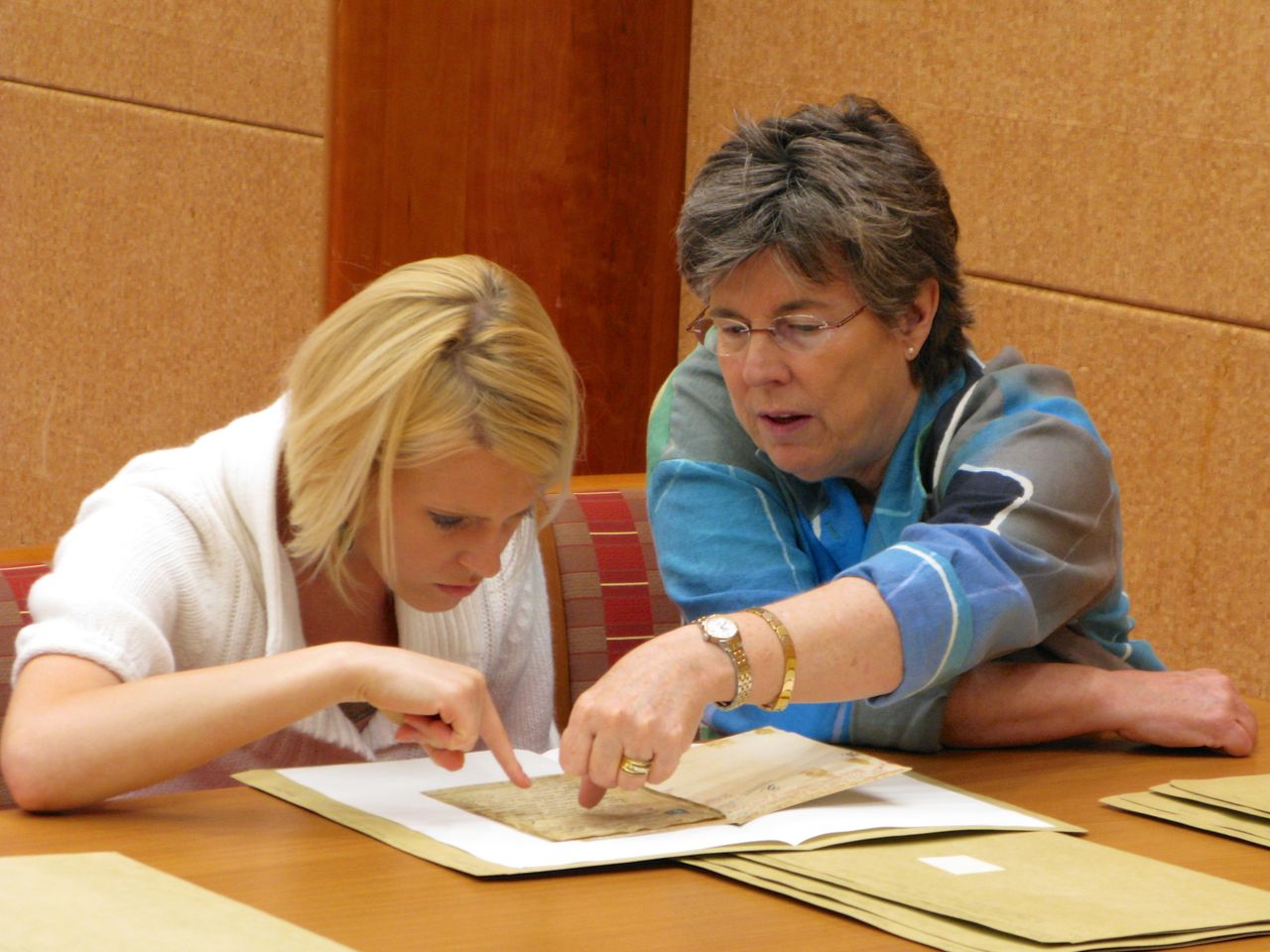A new fellowship program of the Rare Book School at the University of Virginia will train an emerging generation of humanities scholars in the study of the book.
The Andrew W. Mellon Foundation recently awarded Rare Book School an $896,000 grant to fund The Andrew W. Mellon Fellowship of Scholars in Critical Bibliography program, which will supply 20 three-year fellowships for junior faculty, postdoctoral fellows or doctoral students in the humanities interested in bibliographical studies.
The goal is to encourage humanities scholars to look at books as artifacts that contribute more to the study of a subject than the text on their pages, said Michael Suarez, director of Rare Book School. The fellows will attend three courses at Rare Book School, with travel and research stipends, as well as other training opportunities.
“Our aim isn’t to convert a musicologist, French literary historian or science historian into a bibliographer, but rather to empower them with greater interpretive capabilities by encouraging a more thorough understanding of textual artifacts,” Suarez said.
Fifty years ago, bibliographical training was a required element of most top graduate programs in English literature, but that’s no longer the case, he said. The Mellon program will allow a new generation of humanities researchers to become adept at evaluating the wealth of scholarly information provided by a book’s physical form. That could mean understanding the materials and methods that went into a book’s production, or interpreting a book’s intended audience or cultural significance, Suarez said.
“Every book is a coalescence of human intentions,” he said. “Bibliography is a form of literacy that allows us to read the physical book and to recover those human intentions. When we walk into an airport and we see a certain type of book on the rack there, we know what that book is, because we can read its social codes at a glance. Likewise, somebody who walked into a shop in Venice in 1500 could read the social codes in Aldus Manutius's groundbreaking editions."
The fellowship application deadline isn’t until Dec. 1, but Rare Book School has already had about 600 requests for applications. Suarez said he hopes some U.Va. scholars will be among the 20 selected fellows.
“It’s true that U.Va. applicants won’t get preferential treatment, but as this is one of the premiere places for graduate study in the humanities, and an institution that has an extremely distinguished group of junior faculty, I would very much hope that U.Va. would be represented,” he said.
In addition to the courses at Rare Book Schools, fellows will have funding for research trips to archives, a sponsored symposia in their home departments, as well as training modeled after archeological work, in which groups of fellows will go to research collections to refine their scholarly techniques.
Though the program’s focus is on the study of old books, it doesn’t encourage participants to eschew modern technology, Suarez said. In fact, a social media component will help the fellows keep in touch with each other on what the others are working on.
“The digital is not the enemy,” Suarez said. “We would certainly hope that some digital humanists would be among these scholars studying the power of bibliographical investigation and analysis, and this program could serve as a type of bridge-building exercise.”
Should the program be a success, Suarez said he hopes it will expand over the next two years to include a total of 60 participants, with the possibility of an international conference about the integration of bibliographical habits into humanistic research and teaching.
“I think this is a great opportunity for Rare Book School to be a powerful vector for change in the humanities and a force for good in the academy,” he said. “I believe that this grant is also a very good thing for the University of Virginia, as it will be bringing some of the very best and brightest humanities scholars to Grounds repeatedly over the course of the next three years. And that creates many possibilities for lively conversation and productive interchange.”
Media Contact
Article Information
October 29, 2012
/content/rare-book-school-uva-creates-new-mellon-funded-fellowship-train-humanities-scholars-study

